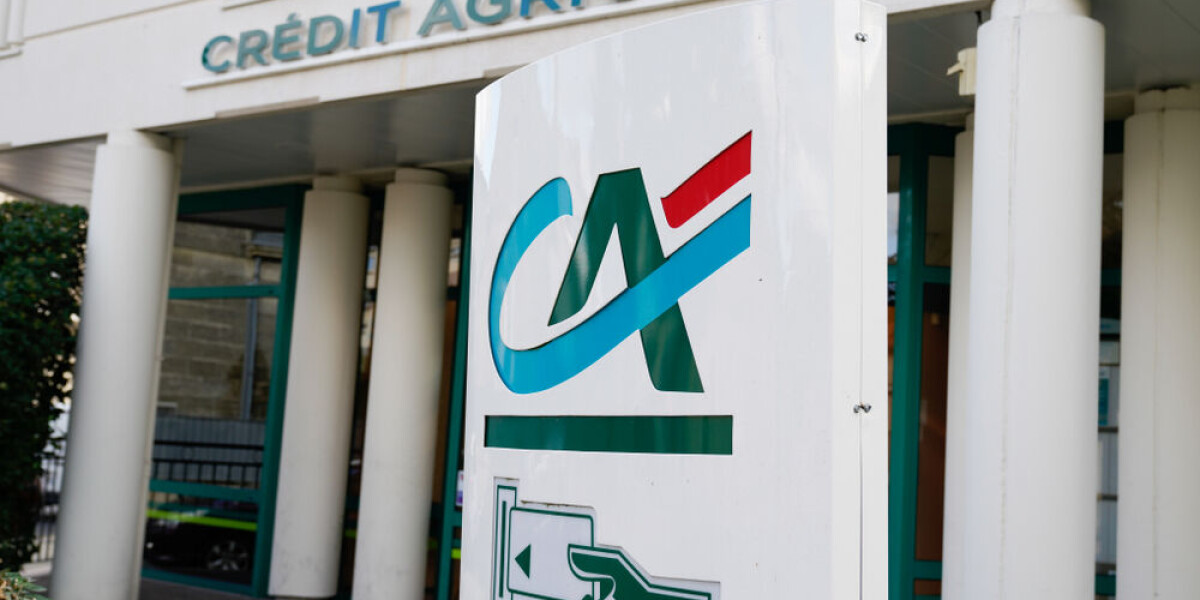
- Select a language for the TTS:
- UK English Female
- UK English Male
- US English Female
- US English Male
- Australian Female
- Australian Male
- Language selected: (auto detect) - EN
Play all audios:
A leading French bank has sent letters to at least 60 British clients in the last few months announcing out of the blue that it is closing their accounts. Brexit makes the rules
complicated, it says. The local Crédit Agricole accounts are those of UK residents with second homes in west France. BANK SAYS ACCOUNTS ARE RARELY USED The letters, written in English, warn
of closure with 60 days’ notice. They demand that bank cards and cheque books are returned and warn that any overdrafts must be paid off by the closure deadline. The bank says this
concerns accounts that are rarely used but affected readers told us their accounts are in regular use, and necessary, to pay bills relating to their French properties. In one case a wife’s
account is being closed while her husband’s with a larger balance is not. Both are used for paying utilities, taxes, and expenses such as repairs and gardening. BREXIT AND ANTI-LAUNDERING
BLAMED The letters are mainly coming from the headquarters of the bank’s Nord Midi-Pyrénées caisse, which covers Lot, Tarn, Aveyron and Tarn-et-Garonne, although a similar letter was
received last year in Pas-de-Calais. In that case, the reader complained and was able to remain a client. Crédit Agricole Nord Midi-Pyrénées told The Connexion the closures were partly due
to complications linked to the UK leaving the EU, and also strict anti-money laundering rules which state that it must ‘know’ each client, which is harder when they are abroad. Read more:
Can you open a bank account in France without a local address? WIFE WAS DEVASTATED AT LETTER The letters’ formal tone added upset. Retired headteacher Michel Taylor, 78, who has a home in
Aveyron, said his wife, 83, was “devastated” to receive a letter of closure. “It was a very legalistic letter. The account has been solvent for 30 years, it is crazy. “Maybe there are some
dodgy accounts but not those of ageing foreign couples like us paying our bills at the right time. We have made transfers to keep it topped up regularly.” An adviser at Britline, an online
English-speaking service run by the Normandy caisse, told him his account may have been kept as its balance was higher than his wife’s. A spokesman for the Crédit Agricole group said there
is no overall policy on UK residents. ‘TOLD I MUST REMOVE MONEY QUICKLY’ Retired lawyer Jeremy Strachan, 79, who has been a Crédit Agricole client in the Lot for 25 years, said: “I have been
told informally by the person I dealt with at the bank that many people are in this position. “The original email, in English, gave notice of termination with no explanation and with
threats that I must remove my money quickly. It was unpleasant. “In England, banks can only terminate an account without justification if they suspect it is involved in money laundering.
For a major bank to behave this way is pretty poor. “They suggested I move to Britline. One arm [of Crédit Agricole] was implying I was a crook by terminating the account inexplicably, while
another arm welcomed me.” REPAY OVERDRAFT OR FACE LEGAL ACTION The Connexion has seen two of the letters, which state: “Due to the general conditions of our account agreement, we wish to
end our business relationship with you.” Customers were asked to stop transactions on the account and told to send a copy of their passport and a request for the funds to be transferred to
another bank account. Any overdraft would also have to be repaid by the deadline, or legal action would ensue, the letters warned. Read more: Seven ways to save on French bank charges ‘THE
WORDING WAS BLUNT’ David Sword, 69, who has had a second home and bank account in Lot since 1994, said he was not given a specific reason despite inquiries. However, he was sent a follow-up
message saying the decision “does not call into question the quality of our interactions” (ie. it was not his fault). Mr Sword, a retired local government worker, said the original letter
was sent to his wife – it is a joint account. “It seemed to imply it had been overdrawn. The wording was blunt and made us think we had done something to break the contract.” He added: “My
local branch has always been fabulous. Our contact says he has had a lot of Britons ringing him.” He said Britline appeared “quite attractive” as he did not need to be in France to open an
account but its website said a deposit of €3,000 was required, which made him hesitant. ‘AS FRAUDSTERS FIND NEW LOOPHOLES, NEW REGULATIONS COME OUT’ A spokesman for Crédit Nord Midi-Pyrénées
said there had been about 60 closures. They were linked to the complexities in dealing with UK-based clients post-Brexit, plus regulations imposed about information they must seek from
clients to fight money laundering, he said. This especially affects accounts that are dormant or infrequently used, he said, and where it is hard to stay in close contact with customers who
are abroad. “We are obliged to run checks on how the account is running and when the client is abroad, it adds to the complications. “There is a permanent, ongoing reinforcement of the
regulations. As fraudsters find new loopholes, new regulations come out.” ‘NORMALLY WE WOULD WARM CUSTOMERS BY PHONE’ The closure letters must “respect a certain format, regardless of the
reason for the closure”, he said. The regional head office has now been phoning those concerned. “Normally, we would aim to warn the customer before the letter arrives.” While the recent
decisions affect French accounts of UK residents with French second homes, French-resident Britons with UK accounts have also faced Brexit-related closures. Barclays Bank, for example,
announced last year it was closing all such accounts. Read more: Ex-Barclays customer in France struggles to transfer funds WHY IS BRITLINE NOT AFFECTED? Britline said its service, with
mostly British advisers, is used to dealing with regulations that affect Britons so it does not refuse clients linked to the complex rules. It is part of Crédit Agricole Normandie, covering
Manche, Calvados and Orne. Its head Eric Morvan said they have taken on “a limited number” of people following account closures elsewhere. Last year, UK-resident account holders in
Normandy, other than French expatriates, were moved automatically to Britline, with several saying the decision came as a surprise. Britline said this was not Brexit-related. “Britline
customers are satisfied with the quality of service, so we thought it was better to ask our teams to look after them, rather than having customers spread out across local branches.” NO
LONGER MINIMUM AMOUNT TO OPEN BRITLINE ACCOUNT He said there is no longer a systematic requirement for a set sum to open an account but requirements vary case by case. While the service is
online-only, customers can use day-to-day services such as cash machines at high street banks and everyone has a dedicated adviser. In the coming weeks, they will offer webcam consultations,
Mr Morvan said. “If an issue is complex – for example, relating to inheritance – we can do three-way consultations with experts at our headquarters.” Several members of The Connexion’s
subscribers’ Facebook group recently gave positive feedback on the service. Read more: Telecom firms, utilities: which offer English language services in France? CAN BANKS CLOSE ACCOUNTS
WITH NO EXPLANATION? French law allows banks to close accounts without giving a reason, with 60 days’ notice. It requires them to check that movements of funds are not related to money
laundering or terrorism. Banks can ask the reasons for any transactions, as well as general questions about customers’ financial resources and wealth. In the latter case, they should say
why this is being asked. If clients refuse it can result in account closure. ‘WE THINK THEY SIFT OUT LESS PROFITABLE CUSTOMERS’ Patrick Sourdin, general secretary of banking consumer body
France Conso Banque, said: “Banks don’t communicate much on the subject of closures, or sometimes give false reasons. “It has been increasing since the 2015 terror attacks and even more
since the war in Ukraine. “The banks don’t say so clearly, but we think this is also to some extent a way for them to sift out customers that aren’t profitable enough.” He added: “We advise
opening an account with another bank as soon as possible, as account-closing banks rarely change their mind.”







